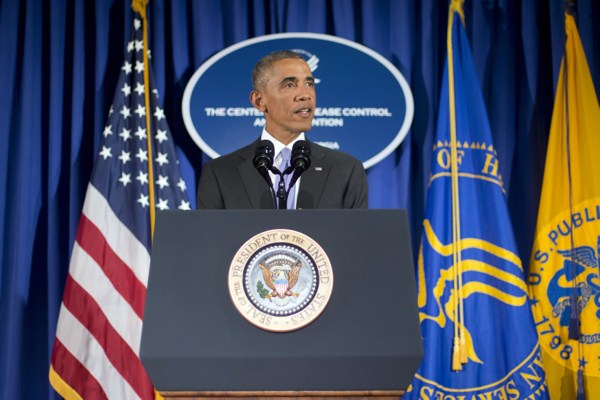When President Barack Obama announced plans for calibrated U.S. air strikes in Iraq last week, he set off heated debates about the wisdom and chances for success of his strategy to “degrade, and ultimately destroy” the Islamic State group operating there and in neighboring Syria. This week, the White House announced another military deployment that, despite involving not air strikes but some 3,000 American boots on the ground, evinced barely a second glance: the medical humanitarian mission to West Africa to contain the ongoing outbreak of the Ebola virus there.
The reason for the contrast in reactions is of course due to the obvious and major difference between the Islamic State group and the Ebola virus. The former chooses its victims, supposedly for tactical and strategic advantage, while the latter operates randomly.
Nevertheless, they share many similarities in terms of their effects, impact and implications. They both are deadly, contagious and fast-spreading, and both threaten to destabilize wide swathes of strategically important and vulnerable regions. Similarly, both missions put American armed forces at risk and threaten to provoke blowback among the affected populations, despite Washington’s good intentions.

